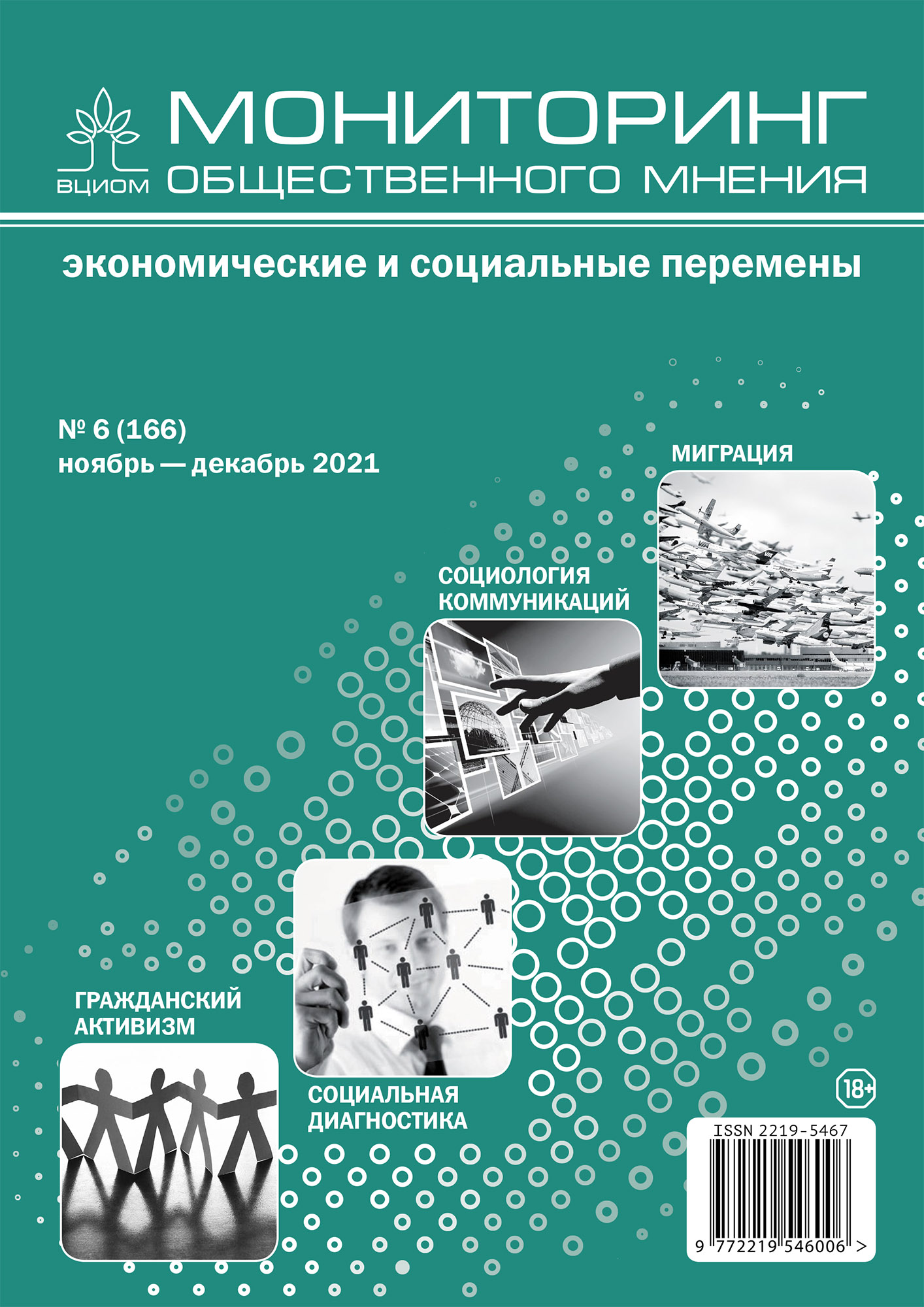Russians’ Attitudes Towards Migrants: Opinions and Doubts
DOI:
https://doi.org/10.14515/monitoring.2021.6.2139Keywords:
migrants, attitude towards migrants, tolerance, trust, ife satisfaction, locus of control, European Social SurveyAbstract
This study focuses on the Russians’ attitudes towards migrants, which are measured by the extent to which respondents agree or disagree with letting people of other nationalities move into Russia. The data comes from the European Social Survey (ESS) for 2006-2018. The results indicate that, on the one hand, tolerance towards migrants is closely related to the level of respondent’s education: more educated individuals tend to be more friendly to migrants. On the other hand, it is related to the respondent’s broader system of views about the world. Those views can be based either on irrational prejudices and fears or independent rational thinking, scientific knowledge, and faith in oneself. If individuals perceive the world with caution, are prone to prejudices and fears, do not trust anyone, and believe that injustice surrounds them, then they are more likely to reject migrants. At the same time, self-sufficiency and self-confidence are accompanied by greater tolerance and openness for the unfamiliar, including people from other countries.
Acknowledgments. The article was prepared with the support of the Program of Fundamental and Applied Scientific Research on the topic “Ethnocultural Diversity of Russian Society and Strengthening the All-Russian Identity” 2020–2022.
The author is grateful to V. Magun, V. Mukomel, and anonymous reviewers for their valuable remarks and comments.
Downloads
Published
How to Cite
Issue
Section
License
Copyright (c) 2021 Monitoring of Public Opinion: Economic and Social Changes Journal (Public Opinion Monitoring) ISSN 2219-5467

This work is licensed under a Creative Commons Attribution-NonCommercial-ShareAlike 4.0 International License.






